The coronavirus vaccine developed by Oxford University and AstraZeneca shows promise as it can generate both antibodies and cell-mediated immune responses, say several scientists in India and abroad, while cautioning that there is still a long way to go.
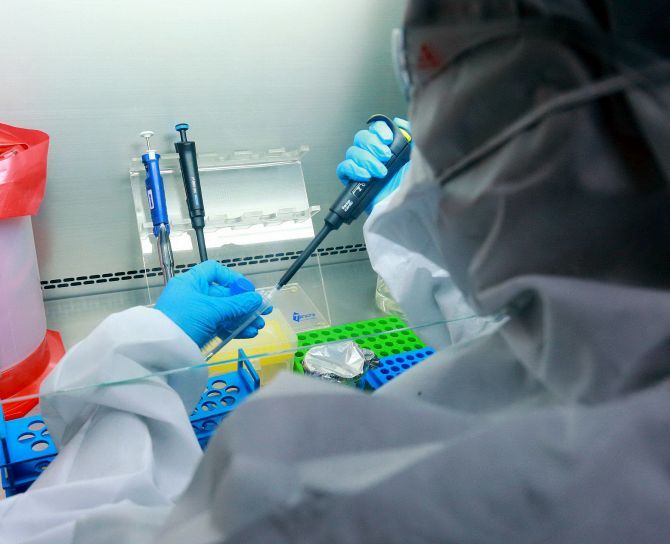
"Very promising", "comforting" and "interesting" were some of the reactions from the scientific community a day after The Lancet revealed the vaccine appears safe and induces a strong immune response following the first phase of human trials.
Doses of the vaccine were given to 1,077 healthy adults aged between 18 and 55 in five United Kingdom hospitals in April and May as part of the phase one clinical trial.
With scientists and researchers across the world racing to develop a vaccine against the disease that has infected more that 14.7 million people across the world and claimed more than 6,00,000 lives, the Oxford-AstraZeneca results are being examined closely.
It is "ideal" that the vaccine is able to generate both humoral and cell mediated immunity, virologist Upasana Ray said.
Humoral immunity is the production of antibodies by the body's B cells. While antibodies make up the protein component of the immune system, T cells offer vital cell-mediated immunity, she explained.
Ray, senior scientist at Kolkata's CSIR-Indian Institute of Chemical Biology, added that both components are essential to provide effective immunological memory and also for long-term protection.
"The preliminary findings look very promising with responses to the vaccine similar to what is seen post natural infection," added Beate Kampmann, professor of paediatric infection & immunity and director of The Vaccine Centre, London School of Hygiene and Tropical Medicine.
"The immune responses to the ChAdOx1 nCoV-19 vaccine were measured both in terms of quantity and quality of antibody as well as for T cell responses to the spike protein in a subgroup of individuals," Kampmann said in a statement.
Researchers also found it promising that a booster dose of the vaccine in 10 of the trial's participants produced more immune response.
"Trial participants developed the all-important neutralising antibodies, in most cases after one shot, and in all cases after two shots," noted Ian Jones, professor of Virology at the University of Reading in the UK.
Satyajit Rath, an immunologist from the National Institute of Immunology in New Delhi, found it interesting and promising that the boost with the same vaccine candidate tended to increase antibody levels further despite pre-existing antibodies.
"The vaccine candidate shows no unexpected awful adverse effects," Rath told PTI, adding that the formal addition of paracetamol showing some relief from adverse effects without modifying immune responses is useful information too.
Commenting on the side effects of headache and fatigue reported by the participants in the study, experts said they are not a major concern and commonly observed in vaccines.
"Such side effects have been seen in other vaccines as well and these subside in a few days' time. So, as of now, I don't see these as major points of concern," Ray said.
The results show the desired and expected effects in terms of the immune response and “does not have serious adverse effects seen in the numbers recruited so far", said
Stephen Evans, professor of pharmacoepidemiology at the London School of Hygiene and Tropical Medicine in the UK.
While the study showed there was an immune response generated by the vaccine, scientists cautioned that direct evidence showing whether or not it would prevent or reduce actual novel coronavirus infection has not been documented yet.
"Generating immune response and providing immunological protection might not always run parallel," Ray said.
"Hence, long term population-based studies where vaccinated people could be monitored for future infection/outbreak are important," the CSIR-IICB virologist added. Pointing to the way forward, she said there should be elaborate trials in geographical locations where severities and mortality of COVID-19 are currently high.
According to the virologist, another concern is monitoring long the immunity lasts in terms of antibodies being generated and also the T cell counts.
"We do not know yet if the currently observed levels are enough to protect against infection. The study needs to be run longer," Ray said.
Rath agreed.
"Data that T cell responses are occurring too are expected but still comforting to have, although they provide as yet no information about whether they are functionally relevant for providing protection," he said.
"It is a comforting study in that there are no unpleasant surprises, and it allows this vaccine candidate to move on to actual efficacy trials," the immunologist noted.
Vaccine development is a multi-phase process. Phase 1 trials are small-scale, usually involving few participants, to assess whether the vaccine is safe for humans.
Phase 2 trials often involve several hundred subjects, and mainly evaluate the efficacy.
The final phase involves thousands of people to further assess the efficacy of the vaccine over a defined period of time, and can last several months.

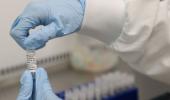
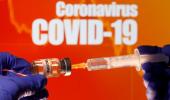

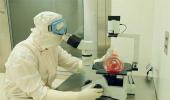




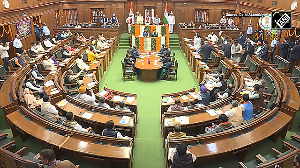


 © 2025
© 2025